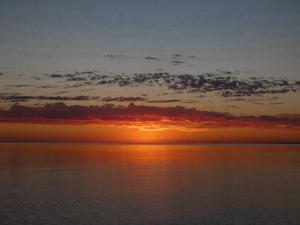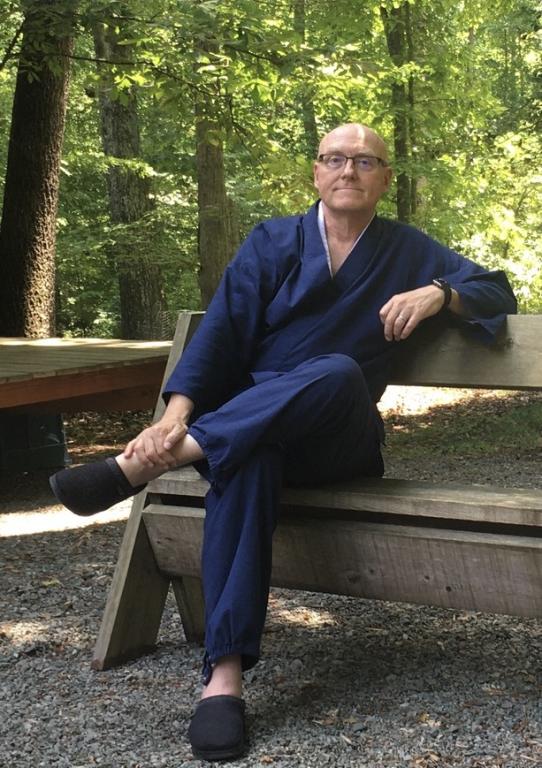“Radiant light” (J. komyō) was one of the central themes for the in-person sesshin we completed on Sunday.
When I translated the text, I compared it to the Cleary version and found many details that could be rendered differently, and in my view, more in line with actual Zen practice.
Below you’ll find headings in bold. The kōan is also in bold. Yuánwù’s capping phrases are in italics. Yuánwù’s commentary on the case and on Xuědòu’s verse are in normal font. Xuědòu’s verse is also bolded. Such conventions are necessary in the interconnected and flowing world of kōan commentary.
Enjoy!
Click here to support my Zen teaching practice at Patreon of which translations and writings like this are one facet. You will also find an advertisement free version of this post there too.
Offering instruction, saying
Take hold of the universe, not leaking a bit. Cut off the myriad flows, not sparing even a tiny trickle. Open your mouth – mistake; conjecture and at once – fall short. Yet, say, what is the eye that passes through the barrier?
舉。Yúnmén said, “Each and everyone is radiant light. Look for it and it is dark, dark.
A black lacquer bucket.
What is everyone’s radiant light?”
When you look – blind.
Answering himself, he said, “The kitchen hall, the triple gate.”
Mountains are exactly mountains, water is exactly water. Wash the black bucket with black paint.
He also said, “A good thing is not as good as no thing.”
Knowing one-half of the self – and really that’s relatively little.
Yuánwù’s Commentary
Within the room, Yúnmén offered words to guide people, “All you people standing on your feet, each and every one of you is a piece of radiant light (kōmyō). Now, as in the distant past, its soaring radiance vanishes in seeing and knowing. Although you are radiant light, when asked to show it, you don’t understand. Isn’t this place dark, dark?”
For twenty years, he offered this instruction, yet there were none who understood his meaning. Later, Xiānglín asked for a saying on behalf of others (daigo). Mén said, “Kitchen hall (kuin), the triple gate (sanmon).”
He also said, “A good thing is not as good as no thing.”
Usually, his daigo were just one line, so why are there two here? The first line acts like a brief opening of the one narrow path, teaching you to see. If you are a singular person, as soon as you hear this, you pick it up, get up, and go.
Yúnmén feared people would languish here, so he also said, “A good thing is not as good as no thing.” According with the previous line, he thus sweeps you away.
Nowadays, people just hear “radiant light” raised, then with glaring eyes, they say, “There is the kitchen hall. There is the triple gate.” For the time being, have no dealings with such people.
Therefore, the saying, “Discern the meaning of the hook, do not accept the zero point.”
This matter is not present in the eye and it is not present in the object. You must cut off awareness and seeing, forgetting gain and loss – pure, utterly naked, unattached. Each and every person must go up to the divide and investigate thoroughly, attaining for the first time.
Yúnmén said, “Within the day’s comings and goings, people distinguish within the day. Suddenly it’s midnight and there is no light from the sun or moon. If this is a place you’ve been before, you know the layout. If this is a place you’ve never been, you can’t find anything. Still, what can you get?”
“The Harmony of Sameness and Difference” says, “Within light, there is darkness. Do not see it as darkness. Within darkness, there is light. Do not meet it as light.”
If you dwell completely in light or dark, yet, say, is it something?Therefore, the saying, “The Mind flower radiates light, illuminating the realms in the ten directions.”
Pánshān said, “Light does not shine on objects. Objects do not exist. Light and objects forgotten, who exactly goes and returns?”
It is also said, “This very seeing and hearing is not seeing and hearing. There is no other sound or color presented either, noble one. When singularly within, it seems there is completely nothing.”
Discrimination or no discrimination – what hinders essence-function? Only fully understand this last line and you can go ahead and play freely. Afterall, you won’t be able to transcend death and make a living. A person of old said, “All things stand on the root which is baseless.”
You must not go here to manage light and shadow, to manage your spirit. Also, you must not make an understanding of nothingness. A person of old said, “It is better to have a view of existence the size of Mt. Sumeru than to allow a view of nothingness the size of a mustard seed.”
Many practitioners of the two vehicles slide into this one-sided view.
Xuědòu’s Verse
Row after row of unique shining selves
Every manifestation, all things connected. Guest and host practicing together as friends. He turns the noses of everyone in the line. Blind people, what are you doing?
Acting as sovereign, permeated by one ray of light
Far more than one ray of light. Ten suns shine together. Let go of the Way of one ray of light and obtain at once.
When looking, who doesn’t see?
Blind. You can’t always hold yourself up with a fence or feel along a wall. Two blind people, three blind people.
Seeing not seeing
Both sides entirely abide in zazen. Blind.
Enter the Buddha Hall, riding the ox backwards!
Inside the triple gate, gasshō. I strike and say, “Turn any direction and go! Return the keyword to me.” Xuědòu turns toward the ghost cave to make a living. At noon, the midnight drum is struck.
Yuánwù’s Commentary
“Row after row of unique shining selves” Everyone’s self, right under foot – the source is this one beam of radiant light. It’s only when it’s searched for in the common way that the result is dark.
Therefore, great master Yúnmén, together with each of you, expresses radiant light right in front of your face. Yet what is the radiant light of living beings, of all people? “Kitchen hall, triple gate.” This is Yúnmén’s solitary luminous place!
Pánshān said, “The solitary halo of the natural mind, pure and bright as the moon, swallows ten thousand appearances.”
This singularly and exactly exposes the true solitary constant. Then, together with the sovereign, it shines through a single ray of light. But due to the fear that people would become attached and make a home in “kitchen hall, triple gate,” then accordingly, the kitchen hall and triple gate will be temporarily removed.
A morning flower on the withered tree has no shadow. The sun has set, the moon is dark. The heavens, the earth, the ground of bodhisattva practice are extinguished – complete darkness.
Still, all people see! When looking, who doesn’t see? Yet, say, who doesn’t see?
It’s like above, “Within light, there is darkness…within darkness, there is light.” In each case, “the front and back foot” clarify the self.
Xuědòu’s “See not seeing,” versifies, “A good thing is not as good as no thing.” Become seeing and not seeing. Become light and not light. “Enter the Buddha Hall, riding the ox backwards!” Enter the inside of the black lacquer bucket! You yourself must ride the ox into the Buddha Hall. Then you’ll see the radical reason for this saying.
Dōshō Port began practicing Zen in 1977 and now co-teaches with his wife, Tetsugan Zummach Sensei, with the Vine of Obstacles Zen, an online training group. Dōshō received dharma transmission from Dainin Katagiri Rōshi and inka shōmei from James Myōun Ford Rōshi in the Harada-Yasutani lineage. He is also the author of Keep Me In Your Heart a While: The Haunting Zen of Dainin Katagiri. Dōshō’s translation and commentary on The Record of Empty Hall: One Hundred Classic Koans, was published in 2021 (Shambhala). His third book, Going Through the Mystery’s One Hundred Questions, is now available. Click here to support the teaching practice of Dōshō Rōshi.













